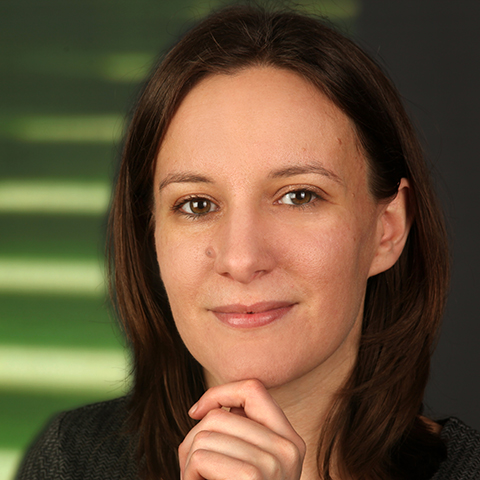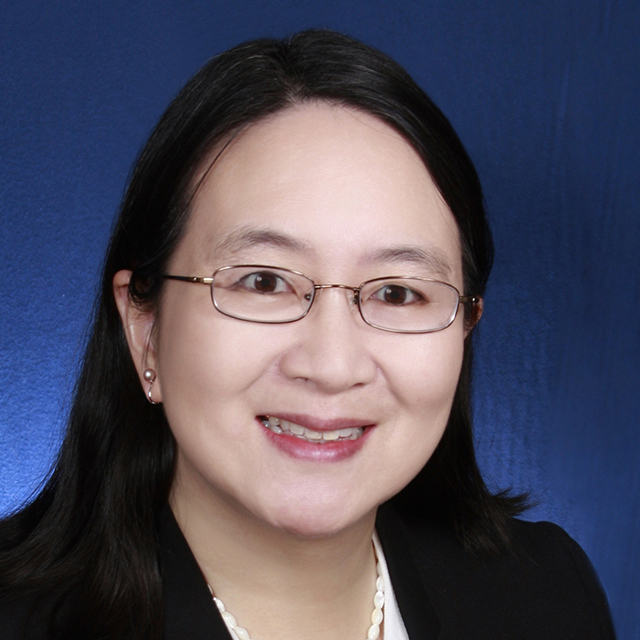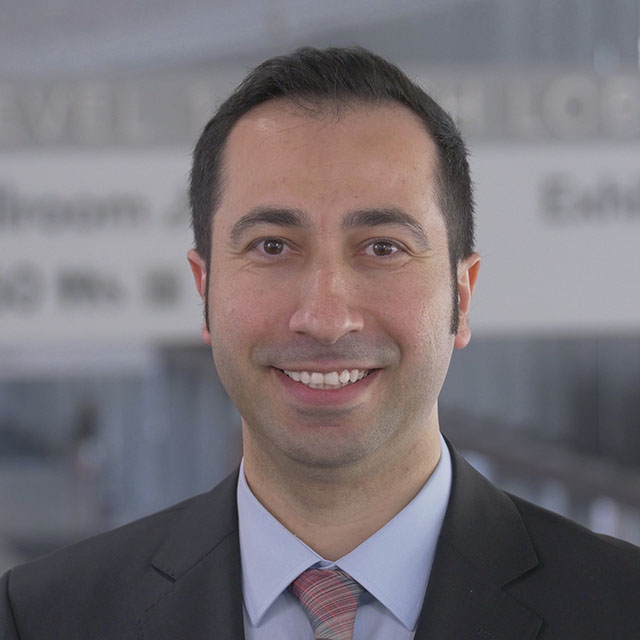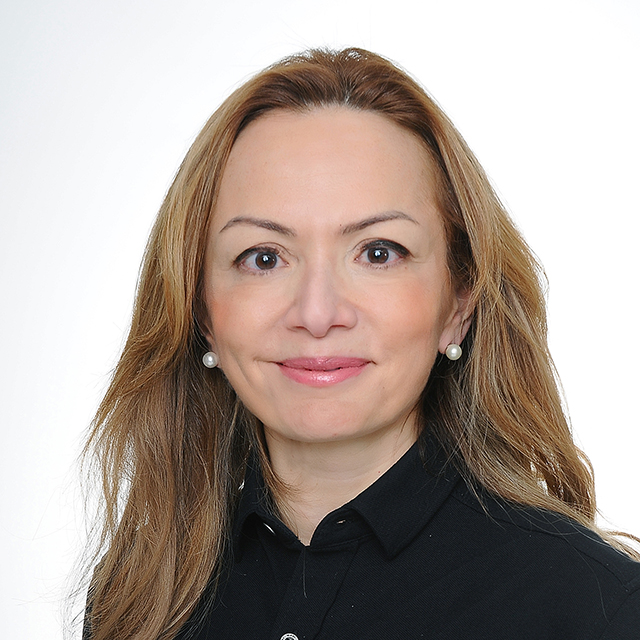Diabetes Technology Meeting
2023 Virtual Poster Session Agenda (All Times Pacific)
Please join us for the oral presentation and moderated discussion of the top abstracts submitted to the 2023 Virtual Diabetes Technology Meeting on Tuesday, November 7th. This session is free for all to attend.
Session A: Blood Glucose Monitoring
Moderators
 Julia K. Mader, MD
Julia K. Mader, MD
Division of Endocrinology and Diabetology, Department of Internal Medicine, Medical University of Graz, Austria
 Michael J. McShane, PhD
Michael J. McShane, PhD
Department of Biomedical Engineering, Texas A&M University, College Station, Texas, USA
8:30Improvements in the Accuracy of a Pre-Commercial Non-Invasive Wearable Glucose Monitor Through the Use of AI
Consuelo Handy et al.
Presented by Daniel Fowles
8:34Glucose Sensor-Induced Extracellular Trap Formation Impair Implant Performance
Kenneth Wood et al.
8:38Comparison Between ID-LC/MS/MS Serum Monosaccharides Method and Enzymatic Methods on Glucose Measurements
Chui Tse et al.
8:42Non-Linear Association Between Blood Glucose Levels and Walking in an Integrated Digital Health Platform for Diabetes Management
Yifat Hershcovitz et al.
8:46Development of a Breath-Based Glucose Estimation Algorithm
Frank Flacke et al.
8:50Development of Novel Ketone Biosensing Receptors for Electrochemical Continuous Monitoring
Bryant Kane et al.
Session B: Continuous Glucose Monitoring
Moderators
 Kong Y. Chen, PhD
Kong Y. Chen, PhD
National Institute of Diabetes and Digestive and Kidney Diseases, Bethesda, Maryland, USA
 Victoria C. Hsiao, MD, PhD
Victoria C. Hsiao, MD, PhD
University of California, San Francisco, San Francisco, California, USA
9:15Personal Continuous Glucose Monitor (CGM) Accuracy During Hospitalization
Adrian Dumitrascu et al.
9:19Continuous Glucose Monitoring with an Osmotic-Pressure Based Continuous Glucose Sensor: Results of the First Human Pilot Study
Andreas Pfützner et al.
9:23Dynamic Interference Test Results with Two Glucoseoxidase-Based CGM Needle Sensors
Andreas Pfützner et al.
9:27Statistical Software Packages and Algorithms for Analysis of Continuous Glucose Monitoring Data – A Systematic Review
Mikkel Thor Olsen et al.
9:31Continuous Glucose Monitoring Among Patients with Type 1 Diabetes in Rwanda: Update From the CAPT1D Study
Jason Baker et al.
Presented by Jason Baker and Jean Claude Habineza
9:35Intravenous Continuous Glucose Monitoring in Hospitalized Patients in a Critical Care Unit: Safety and Efficacy of a Novel Intravascular Continuous Glucose Monitoring System - A Pilot Trial
Daniel Hochfellner et al.
Session C: Insulin Delivery and Digital Health
Moderators
 Zan Fleming, MD
Zan Fleming, MD
Kinexum, Harpers Ferry, West Virginia, USA
 Halis K. Aktürk, MD
Halis K. Aktürk, MD
Barbara Davis Center for Diabetes, University of Colorado, Aurora, Colorado, USA
10:00DR-CIB: An Algorithm for the Preventive Administration of Corrective Insulin Boluses in Type 1 Diabetes Based on Dynamic Risk Concept and Patient-Specific Timing
Elisa Pellizzari et al.
10:04Utilization of a Computerized Dosing Algorithm to Improve Management in Diabetic Ketoacidosis
Zachary Scheid et al.
10:08Evaluating the Effect of EndoTool Utilization for Glycemic Control in Critically Ill Patients
Kinza Salim et al.
10:12The Proposed Insulin Lispro Biosimilar GN1101DP Shows Pharmacokinetic (PK) And Pharmacodynamic (PD) Bioequivalence to Humalog® In Caucasian and Chinese Healthy Subjects
Eric Zijlstra et al.
10:16Using Early Engagement Data From a Digital Health Solution to Predict Future Glycemia Risk Index (GRI)
Abhimanyu Kumbara et al.
10:20Impact of a Digital Diabetes Solution on Medication Adherence in Adults in the United States with Type 2 Diabetes Mellitus
Nita Thingalaya et al.
Session D: Automated Insulin Delivery Systems
Moderators
 Jane Jeffrie Seley, DNP, MPH, MSN, GNP, BC-ADM, CDCES
Jane Jeffrie Seley, DNP, MPH, MSN, GNP, BC-ADM, CDCES
Weill Cornell Medicine, Division of Endocrinology, Diabetes & Metabolism, New York City, New York, USA
 Sultan A. Meo, MD, MBBS, PhD, FRCP
Sultan A. Meo, MD, MBBS, PhD, FRCP
King Saud University College of Medicine, Riyadh, Saudi Arabia
 Rebecca Longo, ACNP-BC, CDE
Rebecca Longo, ACNP-BC, CDE
Lahey Hospital & Medical Center, Burlington Massachusetts, USA
10:45Real-World Glycemic Outcomes Achieved by Three Automated Insulin Delivery (AID) Systems
Robert Vigersky et al.
10:49Comparative Effectiveness of Hybrid Closed Loop Automated Insulin Delivery Systems Among Patients with Type 1 Diabetes
Sara Folk et al.
10:53Advances in Automated Insulin Delivery with the Medtronic 780G System: The Australian Experience
Bella Halim et al.
10:57Developing an Artificial Intelligence Based Algorithm for Predicting Glucose for Patients with Type1 Diabetes Through Multiple Continuous Life-Log Variables
Kun-Ho Yoon et al.
Presented by Joonyub Lee
11:01Strategies to Aid Human-In-The-Loop in Type-1 Diabetes
Mrunal Sontakke et al.
11:05AI-Powered Clinical Trials: Emulating Real-World GLP-1 Efficacy with Synthetic Patient Populations Using Causal Effect Learning
Calum R. MacLellan et al.
Moderators
 Barry H. Ginsberg, MD, PhD
Barry H. Ginsberg, MD, PhD
Diabetes Technology Consultants, Wyckoff, New Jersey, USA
 Eda Cengiz, MD, MHS, FAAP
Eda Cengiz, MD, MHS, FAAP
University of California, San Francisco, School of Medicine, San Francisco, California, USA
11:30A New Portable HbA1c Meter—Red Blood Cell Deformability–Based HbA1c Test
Eunyoung Park et al.
11:34Phenotyping of Type 2 Diabetes by Means of Functional Biomarkers for the Underlying Deteriorations Provides a Valuable Tool for Personalized Treatment Selection – A Discussion Paper
Andreas Pfützner et al.
11:38Outcomes of People with Type 1 Diabetes Receiving GLP-1 Receptor Agonists
Tiffany Tian et al.
11:42Two Center Real-World Evaluation of Spotlight-AQ Improves Glycaemic Control and Reduces Diabetes-Related Distress
Ryan Kelly et al.
11:46Mathematical Modeling of the Effects of Chronic Kidney Disease and Canagliflozin Treatment on Glomerular Filtration Rate
Andrew Shahidehpour et al.
11:50Burden of Using Technologies for Diabetes Self-Management
Sherecce Fields et al.
11:54Type 2 Diabetes Diagnosis and Bacterial Marker Identification Through Gut Microbiota
Prisha Goyal
11:58Structured CGM Education Delivered Via Mobile Phone is Associated with Increased Time in Range: Interim Analysis
Melissa Holloway et al.